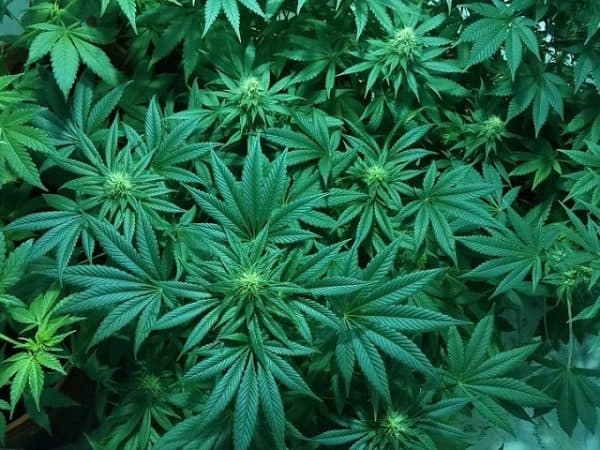
 Cannabis companies are just getting off the ground when it comes to meeting the needs of both medical and adult-use markets in Canada and abroad, but the bulk of them could be headed in the wrong direction when it comes to the production of pot compounds such as THC and CBD, says analyst Rahul Sarugaser of Paradigm Capital, who argues that industrial scale biosynthesis rather than in-the-field crop cultivation is the future for cannabis.
Cannabis companies are just getting off the ground when it comes to meeting the needs of both medical and adult-use markets in Canada and abroad, but the bulk of them could be headed in the wrong direction when it comes to the production of pot compounds such as THC and CBD, says analyst Rahul Sarugaser of Paradigm Capital, who argues that industrial scale biosynthesis rather than in-the-field crop cultivation is the future for cannabis.
Biosynthesis is the production of molecules using living cells such as bacteria, yeast or algae as factories, one notable application being the use of E. coli to produce human insulin for the treatment of diabetes, first developed in the 1970s by Genentech, now Roche AG.
And while biosynthesis for the production of cannabinoids like THC and CBD has yet to become a commercial reality, a number of private and public companies are actively pursuing the process, as the advantages over cannabis crop production particularly for the cannabis extracts market are huge, says Sarugaser, whose research note, “Cannabinoid Biosynthesis: Engineering the Most Disruptive Technology in the Cannabis Industry,” was released Monday.
“The cannabis plant is a relatively inefficient biological factory,” Sarugaser writes. “95 per cent of its volume tends to end up as biomass waste. By volume, the principal cannabinoids, THC and CBD, make up just approximately two to five per cent of the plant, while minor cannabinoids and terpenes —hundreds of them— comprise less than 0.1 per cent.”
“Current methods for manufacturing cannabinoids, which rely on planting, growing and harvesting large quantities of cannabis plants and then extracting and purifying their active compounds, are inefficient, expensive —accounting for cannabis production’s high cost of goods— and often yield a complex chemical mixture of variable and inconsistent composition,” he writes.
In effect, using biosynthesis to create cannabinoids —which would involve a bioreactor akin to the industrial fermenters used in the production of alcohol— would vastly reduce resource and footprint requirements and result in a superior product in terms of purity and quality control, making it clearly the path that the cannabis industry will favour going forward, Sarugaser says.
“In the near future, cannabis companies developing products solely from the cultivation of cannabis plants will find themselves unable to compete with the manifold advantages associated with industrial-scale cannabinoid biosynthesis,” he says.
“As these companies compete with each other to reduce their cost of goods while maintaining purity and consistency of supply, we believe the winners will be those that invest in biosynthesis, if not simply to hedge against its innately disruptive potential.”
The analyst estimates that the horizon for commercialization is about 18 to 24 months out, pointing to more than a dozen companies who are at varying stages in development, including two that he sees as having the greatest potential to rapidly develop a robust and scaleable operation.
One is Ginkgo Bioworks, a private company based in Boston, Massachusetts, which Sarugaser says is about two years out from having a proprietary set of yeast cells for manufacturing specific cannabinoids and has recently partnered with cannabis company Cronos Group on cannabinoid production.
The other is San Diego-based Cellibre, also a private company whose scientific team has taken a number of products from napkin to commercial status and have identified a set of host organisms that have much of the cellular machinery necessary for producing cannabinoids as part of their infrastructure.
Sarugaser concludes that as an industry, it’s cannabis companies that develop Pharma-quality manufacturing practices and incorporate robust clinical strategies that will not only lead the pack but make themselves available to either Pharma investment or acquisition.
“Biosynthesis may be the technology that brings the cannabis space into a future that enjoys the benefits of low-cost, high- purity, consistent sources of cannabinoids at industrial scale, all characteristics that are crucial to global Pharma and CPG companies,” he says.
Leave a Reply
You must be logged in to post a comment.




 Share
Share Tweet
Tweet Share
Share




Comment